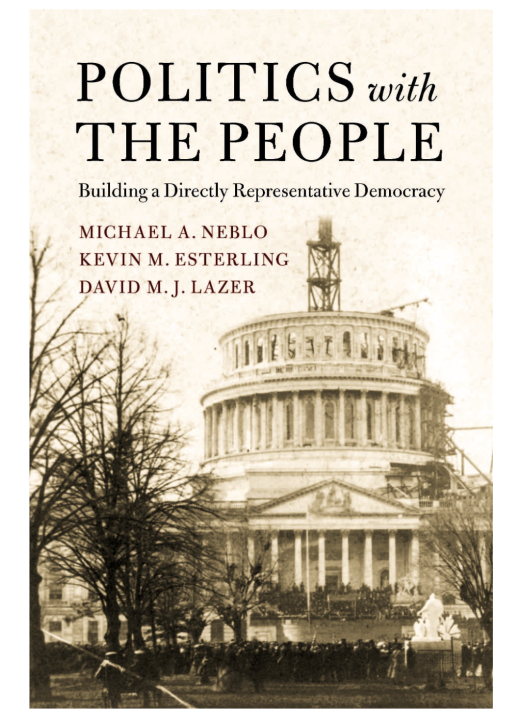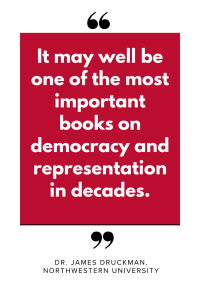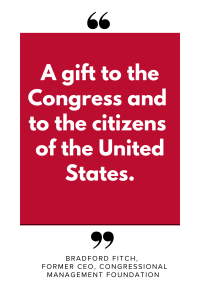Politics With the People: Building a Directly Representative Democracy

In 2006, thirteen sitting members of Congress – frustrated and dissatisfied with status quo politics and limited opportunities for constituent engagement – agreed to work with a team of political science researchers and groups of their constituents on a set of unprecedented field experiments.
The results were startling.
Using random sampling, control groups and other methods, the research team was able to prove conclusively that:
- These online deliberative sessions attracted every kind of citizen—the citizens who voluntarily participated in these deliberative were more representative of the country than the electorate.
- Deliberative events offer lawmakers a chance to reach beyond “the usual suspects”—in fact, they particularly attracted citizens who tend not to follow politics or who have become disenchanted with the system. Furthermore, after participating, these citizens became more likely to vote and take part in political discussions.
-

The design of the deliberative events—with participants reviewing non-partisan back materials and engaging in deliberation guided by impartial facilitators—resulted in high-quality, informed conversations, not talking points and simplistic arguments.
- Participating in these deliberative sessions significantly increased citizens’ trust in government.
- Participants surveyed four months after the deliberative event were 10% more likely to vote for the representative that engaged with them in this way.

These findings were originally published indivdidually in the American Political Science Review, the Proceedings of the National Academy of Sciences, and other prestigious peer-reviewed journals. In 2018, Dr. Neblo and published Politics with the People: Building a Directly Representative Democracy, linking all of the findings into a single compelling argument, and offering a realistic vision for making them a mainstream part of our political system.
